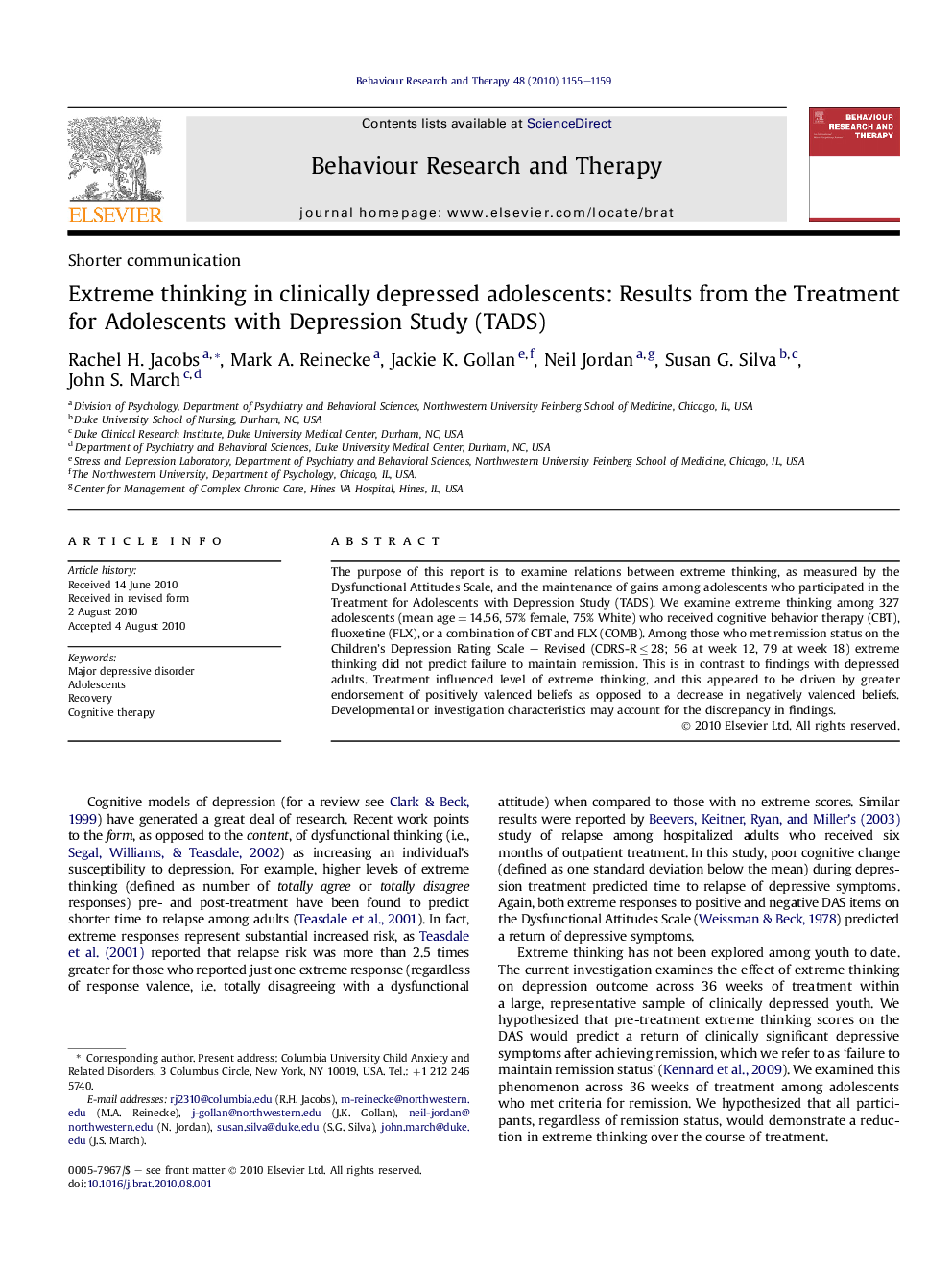| Article ID | Journal | Published Year | Pages | File Type |
|---|---|---|---|---|
| 10444718 | Behaviour Research and Therapy | 2010 | 5 Pages |
Abstract
The purpose of this report is to examine relations between extreme thinking, as measured by the Dysfunctional Attitudes Scale, and the maintenance of gains among adolescents who participated in the Treatment for Adolescents with Depression Study (TADS). We examine extreme thinking among 327 adolescents (mean age = 14.56, 57% female, 75% White) who received cognitive behavior therapy (CBT), fluoxetine (FLX), or a combination of CBT and FLX (COMB). Among those who met remission status on the Children's Depression Rating Scale - Revised (CDRS-R â¤Â 28; 56 at week 12, 79 at week 18) extreme thinking did not predict failure to maintain remission. This is in contrast to findings with depressed adults. Treatment influenced level of extreme thinking, and this appeared to be driven by greater endorsement of positively valenced beliefs as opposed to a decrease in negatively valenced beliefs. Developmental or investigation characteristics may account for the discrepancy in findings.
Related Topics
Health Sciences
Medicine and Dentistry
Psychiatry and Mental Health
Authors
Rachel H. Jacobs, Mark A. Reinecke, Jackie K. Gollan, Neil Jordan, Susan G. Silva, John S. March,
